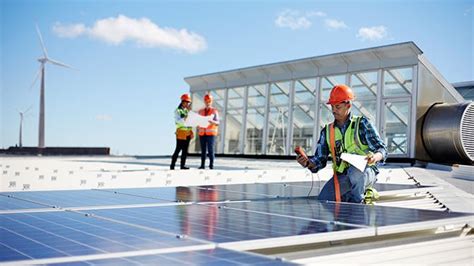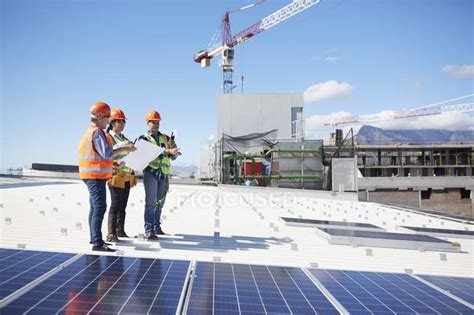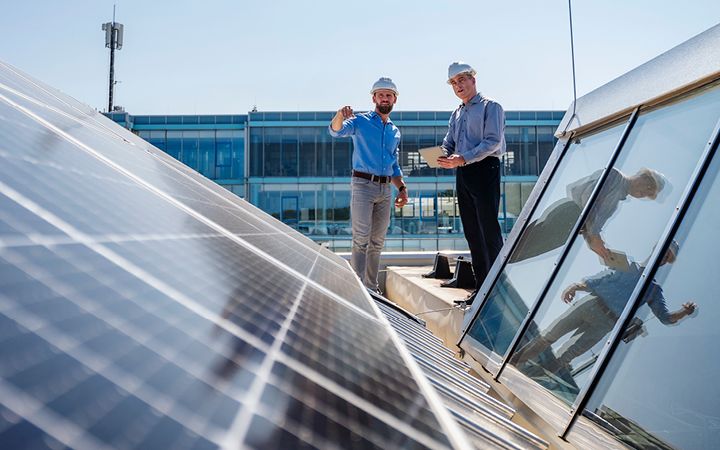In today’s fast-paced event planning landscape, maximizing efficiency is crucial for delivering successful gatherings. One innovative approach that event planners can leverage is solar monitoring, a technology that allows for real-time tracking and management of solar energy systems. By understanding how much energy is generated and consumed, planners can make informed decisions that reduce costs and enhance sustainability. This article delves into the essentials of solar monitoring, exploring its key components and the myriad benefits it offers to event organizers. Additionally, we will provide expert tips on implementing these systems effectively, ensuring that your next event is not only memorable but also eco-friendly and efficient.
Join isorblog.com as we uncover the details of this topic.
1. Introduction to Solar Monitoring
Solar monitoring encompasses the technology and processes used to track and analyze the performance of solar energy systems. As renewable energy sources gain popularity, solar monitoring has become crucial for optimizing energy efficiency, especially in event planning. This system enables event planners to closely monitor energy generation and consumption, guaranteeing optimal performance of solar panels throughout the duration of an event.
Solar monitoring utilizes sensors and software to gather data on key metrics including energy production, sunlight exposure, and system efficiency. This data is then analyzed to offer insights that support decision-making. These insights help planners recognize trends, identify problems, and optimize energy utilization.
By integrating solar monitoring into event planning, organizers can not only lower operational costs but also respond to the increasing emphasis on sustainable practices within the industry. Leveraging solar energy and managing it effectively allows planners to minimize their carbon footprint, showcasing a commitment to environmental responsibility. As more events strive to improve their sustainability efforts, comprehending solar monitoring becomes crucial for achieving energy efficiency and contributing positively to the environment.

2. Key Components of Solar Monitoring Systems
Solar monitoring systems are comprised of several key components that collaborate to deliver real-time data and valuable insights into energy performance. The core component is the solar inverter, responsible for converting the direct current (DC) generated by solar panels into alternating current (AC) for use in electrical systems. Inverters frequently incorporate built-in monitoring capabilities, enabling users to track energy production and assess system performance.
Another essential component is the data logger, which collects and stores performance data from the solar array. This device interfaces with the inverter and sends data to a centralized platform for analysis. Advanced systems utilize remote monitoring capabilities, enabling event planners to access data via mobile apps or web interfaces, offering flexibility and convenience.
Sensors are critical for measuring environmental conditions like temperature and sunlight intensity, factors that directly influence solar panel efficiency. By incorporating these sensors, solar monitoring systems offer event planners a comprehensive understanding of their energy usage. This detailed information empowers planners to make informed decisions, optimize energy consumption, and ultimately enhance the sustainability of their events. This integrated approach enables efficient management of solar energy resources throughout the event duration.

3. Benefits of Solar Monitoring for Event Planners
In today’s sustainable event landscape, solar monitoring provides event planners with numerous benefits, making it an invaluable tool. A key advantage is cost efficiency. By precisely tracking energy generation and consumption, planners can pinpoint opportunities for energy bill savings and optimize solar power utilization, leading to substantial reductions in event operational costs.
Furthermore, solar monitoring fosters sustainability initiatives. By harnessing renewable energy and optimizing its use, event organizers can reduce their environmental impact and showcase their dedication to eco-conscious practices. This not only attracts environmentally aware attendees but also aligns with the burgeoning movement toward sustainable events.
Furthermore, real-time monitoring allows for swift action in response to any performance issues, guaranteeing optimal solar system functionality throughout the event. This proactive measure helps avoid disruptions and ensures a smooth experience for all attendees.
By harnessing solar monitoring data, event planners can gain valuable insights to inform future decisions. Analyzing energy performance trends enables more effective planning and implementation of solar energy solutions, ultimately leading to increasingly efficient and sustainable events in the long run.

4. Implementing Solar Monitoring in Event Planning
To successfully integrate solar monitoring into event planning, several critical steps must be taken. Initially, event planners should conduct an energy audit to determine the event’s precise energy requirements. By understanding the projected energy consumption, planners can select the most suitable solar monitoring system and ensure sufficient capacity for the event.
Choosing the appropriate solar monitoring system is paramount. Planners must carefully assess various systems, considering their functionality, user-friendliness, and compatibility with existing solar infrastructure. Collaborating with established solar energy providers can streamline the process of acquiring advanced monitoring solutions customized to meet the unique demands of specific events.
Following system selection, meticulous planning is crucial for installation and setup. This entails optimizing solar panel placement for peak sunlight exposure and accurately calibrating monitoring devices to gather essential data. Collaboration with technical specialists during the installation process can effectively address any unforeseen issues.
Following installation, ongoing monitoring and maintenance are essential for optimal performance. Event planners should routinely analyze data from the solar monitoring system to identify trends and areas for enhancement. This proactive approach enables adjustments to energy consumption throughout the event, ensuring the solar energy system operates efficiently and effectively, ultimately contributing to a successful and sustainable event.
5. Expert Tips and Best Practices
To maximize the benefits of solar monitoring in event planning, consider these expert tips and best practices. First, always involve solar energy professionals during the planning phase to assess the specific energy needs of your event and recommend suitable monitoring solutions. This collaboration ensures that the system is tailored to your unique requirements.
Invest in user-friendly monitoring software that provides real-time data and alerts. This will enable quick decision-making and proactive management of energy resources during the event. Regularly train your event staff on how to interpret monitoring data and respond effectively to any anomalies.
Additionally, incorporate solar monitoring data into post-event evaluations. Analyzing performance metrics helps identify successful strategies and areas for improvement for future events.
Lastly, communicate your sustainability efforts to attendees. Sharing how solar monitoring contributes to energy efficiency not only enhances the event’s eco-friendly image but also engages participants in environmental responsibility. This transparency fosters a positive impression and encourages future participation in sustainable practices.
Incorporating solar monitoring into event planning presents a powerful opportunity for planners to enhance efficiency and sustainability. By understanding the key components and benefits of solar monitoring systems, event organizers can make informed decisions that reduce costs and environmental impact. Implementing these systems with best practices ensures optimal performance and provides valuable insights for future events. As the demand for eco-friendly solutions continues to grow, embracing solar monitoring not only meets this demand but also positions planners as leaders in sustainable event management. Ultimately, harnessing solar energy contributes to a brighter future for the events industry.
isorblog.com


